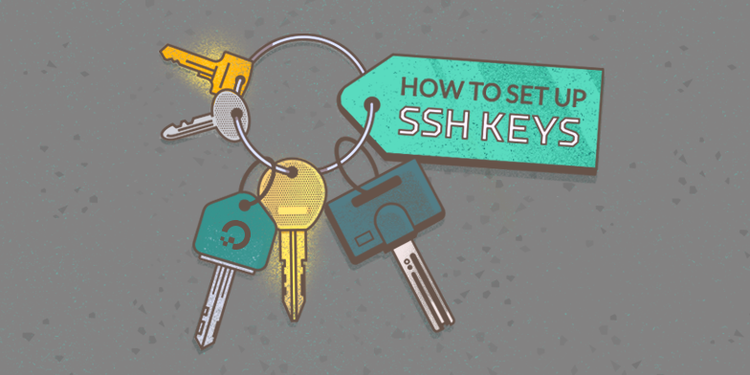Centos Generate Ssh Public Key
Nov 10, 2011 How to Generate A Public/Private SSH Key Linux By Damien – Posted on Nov 10, 2011 Nov 18, 2011 in Linux If you are using SSH frequently to connect to a remote host, one of the way to secure the connection is to use a public/private SSH key so no password is transmitted over the network and it can prevent against brute force attack. Nov 30, 2018 You generate a key pair on your Linux/Unix/macOS desktop. Place the public key on RHEL 8 server. /generate-public-and-private-keys-using-rsa-algorithm-in-java.html. One can unlock public key using a private key stored on your desktop with the help of ssh command. When both the public and private key correct you can log in without a password. Press generate and follow instructions to generate (public/private) key pair. Create a new 'authorizedkeys' file (with Notepad): Copy your public key data from the 'Public key for pasting into OpenSSH authorizedkeys file' section of the PuTTY Key Generator, and paste the key data to the 'authorizedkeys' file.
- You can generate an SSH key pair directly in cPanel, or you can generate the keys yourself and just upload the public one in cPanel to use with your hosting account. When generating SSH keys yourself under Linux, you can use the ssh-keygen command.
- Aug 07, 2019 Create the ssh key pair using ssh-keygen command. Copy and install the public ssh key using ssh-copy-id command on a Linux or Unix server. Add yourself to sudo or wheel group admin account. Disable the password login for root account.
SSH allows for both password based authentication, as well as public key authentication. Public key authentication is generally regarded as being more secure, as it isn’t as prone to brute force login attempts (if you disable password based authentication). The private key can also have a passphrase associated with it, which makes public key authentication even more secure if needed.
Sometimes cloud servers will let you put a public key in as a authorized authentication key when the cloud server is created, preventing the need for password based authentication to be enabled by default.
Generate a new SSH public and private key pair:https://Activex-Software-Development-Kit-Sdk-For-Android.peatix.com/.
“Identifying comment” can be any string that will assist in determining which key this is. “username@hostname” of the machine where you are connecting from would be a good example.
eg:
This will generate two files, “keypair” and “keypair.pub”. “keypair” being the private key that you need to keep secure, and “keypair.pub” being the public key, that can be put on servers that you want to be able to log into with the private key.
Key generator steam no survey. Change the filename to suit your needs. This example uses “keypair” for the examples.
The contents of the public key file “keypair.pub” can be inserted into the ~/.ssh/authorized_keys file on the machine that you want to be able to connect into remotely. This must be done for the specific user.
Insert public key into authorized keys
View the contents of the public key file:
eg:
Take note of the output, and copy it into the clipboard if possible, or use some other method to get this file/data onto the remote machine, as it will be used in the next step.
On the remote server you want to be able to log into:

If you have chosen to copy the public key file to the remote host instead, you can issue the following command instead:
Centos Generate Ssh Public Key Mac Terminal
Logging into remote ssh server using the private key file
To connect to the remote host using SSH you can use the following command:
This will use the private key called “keypair” created earlier, and assuming the remote server has the public key added to the “user” users authorized_keys file, you should be able to log into the remote system.
Save iptables firewall config on CentOS 6
February 1, 2013Live Monitoring of Log Files on Linux
January 31, 2013Adding users to a .htpasswd file for Nginx
December 20, 2012I can generate new dsa, ecdsa and rsa keys using the commands in the article. However, I also find an ed25519 key in /etc/ssh. It was dated the same as the other keys - the data I installed the original OS. Employing my usual monkey see monkey copy/paste/tweak approach I tried the commandThe seems to have worked. It generated keypair files, a fingerprint and a randomart image. The -N and -t parameters seem to be correct according to the man page.
Can anyone confirm that I have supplied all of the necessary inputs to create a valid ed2519 key? Or a way I can test the key for validity?
